Castor Oil For Baldness: 6 Effective Remedies For Thicker Hair
There is more than one way to include this nourishing oil in your haircare routine.
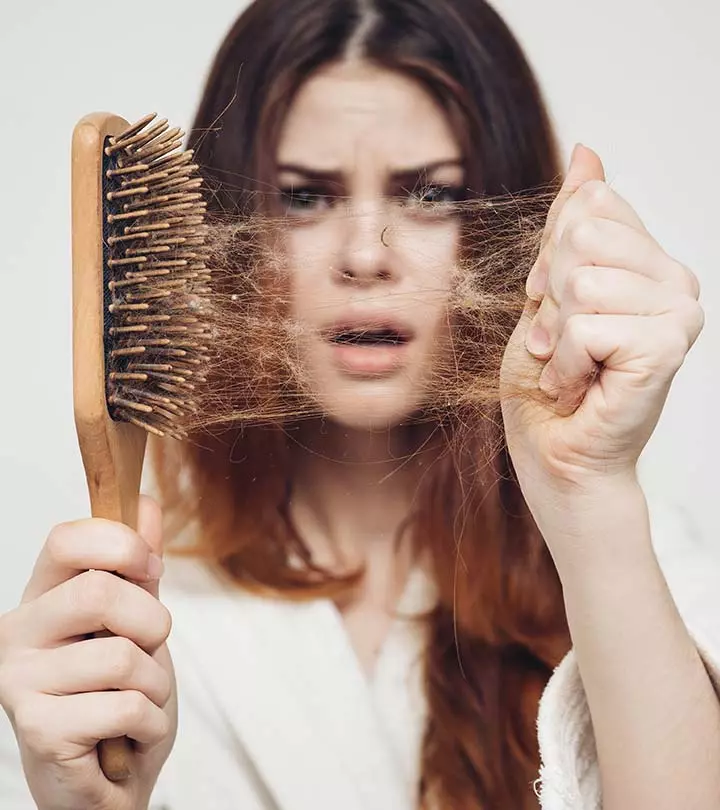
Image: shutterstock
If you are wondering how to use castor oil for baldness, you probably have a lot of questions! We will respond to all your inquiries.
Hair loss is a difficult experience. It can be heartbreaking to watch your hair become thinner and thinner. When you are terrified to run your fingers through your tresses, it’s time to seek assistance. But how do you know which product will perform when dozens on the market guarantee to stop hair loss?
A study conducted on 18,368 participants found that the incidence of alopecia areata (AA) had increased from 0.199% in 2016 to 0.222% in 2019. It was further noted that the incidence of alopecia totalis increased from 0.012% in 2016 to 0.019% in 2019.
One simple approach to prevent this problem is to use natural medicines that don’t cause any adverse effects. For example, topical application of castor oil has long been used for hair loss treatment. But does it really work? Keep scrolling down to find out!
 Trivia
TriviaIn This Article
What Causes Baldness?
1. Autoimmune Disorders:
Alopecia areata frequently coexists with autoimmune conditions such as vitiligo, lupus, and thyroid disorders. Individuals with vitiligo, in particular, have an increased risk of developing alopecia areata (1), (2).
2. Cellular Immunity: Certain immune cells, specifically lymphocytes, release substances called cytokines that hinder follicular growth and disrupt hair synthesis (3).
3. Atopy: Alopecia areata is commonly associated with atopic diseases like asthma, rhinitis, and atopic dermatitis, especially in cases of early onset and chronic hair loss (4).
4. Trauma And Stress: Psychological trauma and emotional stress can induce alopecia areata by decreasing substance P, which may inhibit hair growth (4).
5. Nutrient Deficiency: Iron and zinc deficiencies have been linked to alopecia areata patients and may further aggravate the condition (5), (6).
Key Takeaways
- The fatty acids and vitamin E content in castor oil can strengthen the hair shafts and control hair fall.
- Castor oil stimulates the hair follicles, which in return can support hair growth.
- The combination of rosemary essential oil and castor oil can aid in increasing hair growth and soothing the scalp.
- Castor oil along with hibiscus petals may curb hair breakage and impart a natural shine to them.
Castor Oil For Baldness – How It Works
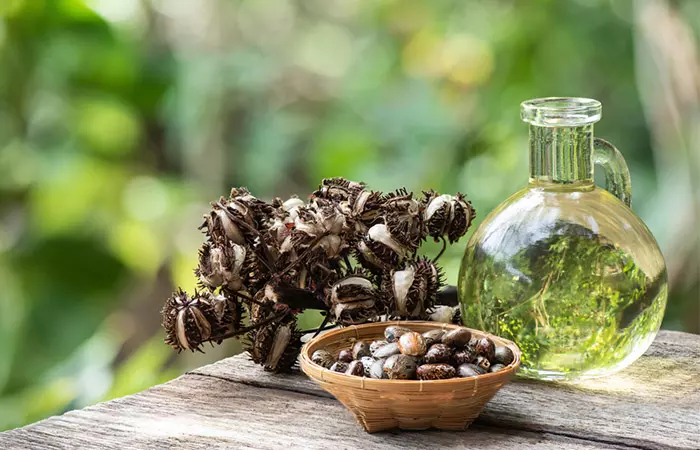
There is no scientific research that links castor oil to hair growth. However, proponents claim that using castor oil for hair growth also treats issues like dandruff. Here are a few reasons it may work:
- Castor oil possesses strong antibacterial, antifungal, and anti-inflammatory properties (7), (8). These properties help boost scalp health and hair density by minimizing hair loss caused by issues like dandruff and other kinds of scalp aggravation.
- Regular application of the oil can help boost blood circulation, which, in turn, may help flush out toxins from your hair follicles. It may also keep your follicles nourished so that they produce healthy hair.
- A lot of the time, unhealthy hair starts to thin out because of breakage. Castor oil also helps in moisturizing and conditioning your hair, eliminating issues like hair-splitting and breakage (9). The added moisture also helps soothe issues like dryness and frizz, giving your hair a healthier look.
- The oil is a rich source of omega-6 fatty acids and vitamin E, which nourish your follicles while also strengthening your roots and hair shafts. This curbs hair fall.
- Castor oil contains ricinoleic acid (10). Studies have found that the acid helps inhibit prostaglandin D2 synthase, an enzyme that can decrease hair lengthening and cause balding (11).
Epiphanie Tsafack, a beauty and lifestyle YouTuber uses castor oil for 30 days to improve her thin edges. “I still have thin edges but the difference is obvious. My edges are not the same as they were when I started applying castor oil to my edges (i),” she says while also adding that it does not matter if you use regular or Jamaican Black castor oil. She claims she is going to continue using it since the changes make her feel hopeful for a solution to treat her alopecia.
These experiences go to show that castor oil’s efficacy for baldness may vary from person to person, and the results may not be significant.
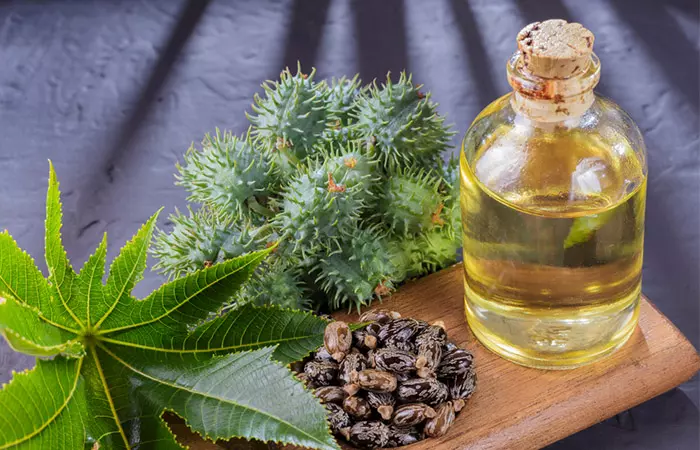
Let’s now understand how to use castor oil to reduce balding and aid hair regrowth.
How To Use Castor Oil
1. Castor Oil For Baldness
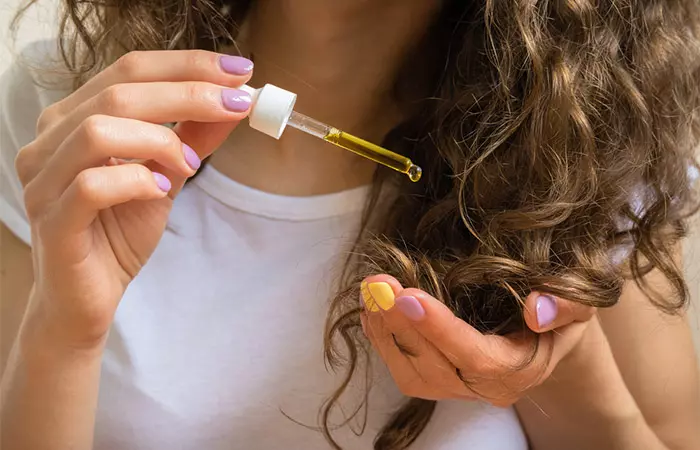
Castor oil contains ricinoleic acid, which helps stimulate hair growth from dormant follicles. It may help strengthen the roots of your hair while nourishing your hair follicles. Thus, the oil may promote hair regrowth.
You Will Need
2 tablespoons castor oil
Prep Time
2 minutes
Processing Time
45 minutes
Process
- Heat the castor oil for a couple of seconds until it is slightly warm.
- Apply the oil to your scalp and ensure that you have every spot covered.
- Massage your scalp for about 10-15 minutes. Concentrate on the problem areas where you have been experiencing a lot of hair loss.
- Leave the oil in for an additional 30 minutes. Optionally, you can leave it overnight.
- Wash the oil out with water and a mild sulfate-free shampoo and conditioner.
How Often?
3 times a week.
 Quick Tip
Quick Tip2. Mix Castor Oil And Coconut Oil
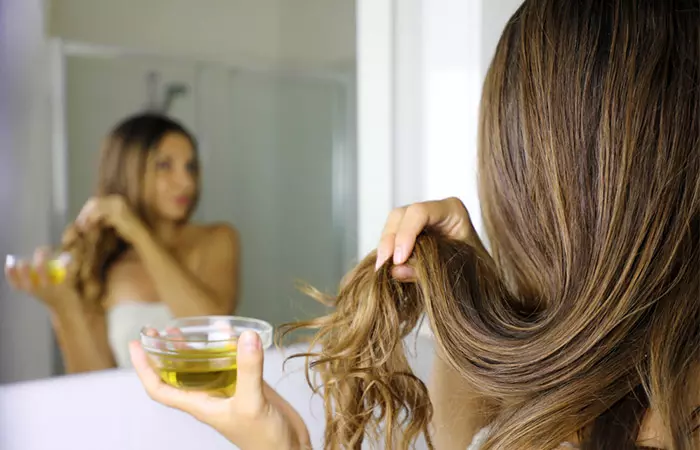
In the debate of castor oil vs. coconut oil for hair care, each offers unique benefits for treating baldness and promoting hair growth. As castor oil has an extremely thick consistency, combining it with a carrier oil, such as coconut oil, helps it saturate your hair better. This helps boost the oil’s efficiency when it comes to improving the health of your hair shaft. Coconut oil is also extremely penetrative and will leave your hair feeling strong and deeply conditioned (12).
You Will Need
- 1 tablespoon castor oil
- 2 tablespoons coconut oil
Prep Time
2 minutes
Processing Time
45 minutes
Process
- Combine the two oils in a bowl and heat the blend until it is slightly warm.
- Apply the oil blend to your scalp. Once you have covered your scalp, work the oil down to the tips of your hair.
- Massage your scalp for about 10-15 minutes. Concentrate on the problem areas where you are experiencing a lot of hair loss.
- Leave the oil on for an additional 30 minutes. Optionally, you can leave the oil on overnight.
- Wash the oil out with water and a mild sulfate-free shampoo and conditioner.
How Often?
3 times a week.
3. Castor Oil And Lemon Essential Oil
Lemon essential oil can help in treating issues of the scalp and boosting scalp health. It is also a rich source of vitamin C that helps boost collagen levels and promote hair growth (13). The oil also smells wonderful and will leave your hair feeling fresh!
You Will Need
- 2 1/2 tablespoons castor oil
- 1 teaspoon lemon essential oil
Prep Time
2 minutes
Processing Time
20 minutes
Process
- Combine the two oils in a bowl and heat the blend until it is slightly warm.
- Apply the oil blend to your scalp and ensure that you have every spot covered. Work the oil down to the tips of your hair.
- Massage your scalp for about 5 minutes. Concentrate on the problem areas where you have been experiencing a lot of hair loss.
- Leave the oil on for an additional 15 minutes.
- Wash the oil out with water and a mild sulfate-free shampoo and conditioner.
How Often?
2-3 times a week.
4. Rosemary Oil And Castor Oil
Rosemary essential oil is an excellent hair regrowth stimulant that also helps fight oiliness (14). It unclogs your pores and soothes your scalp with its antibacterial, antioxidant, and anti-inflammatory properties.
You Will Need
- 2 teaspoons coconut oil
- 2 teaspoons castor oil
- 4-5 drops rosemary essential oil
Prep Time
2 minutes
Processing Time
30 minutes
Process
- Pour the castor oil and coconut oil into a pan and heat over a low flame for about a minute. Ensure that the flame is set very low because you do not want to overheat the oils.
- Pour the oil into a bowl and add 4-5 drops of rosemary essential oil to it.
- Apply the oil blend to your scalp. Cover your scalp and work the oil down to the tips of your hair.
- Massage your scalp for about 5-10 minutes. Concentrate on the problem areas where you have been experiencing a lot of hair loss.
- Leave the oil on for an additional 20 minutes.
- Wash the oil out with water and a mild sulfate-free shampoo and conditioner.
How Often?
2-3 times a week.
5. Mix Castor Oil With Tea Tree Oil
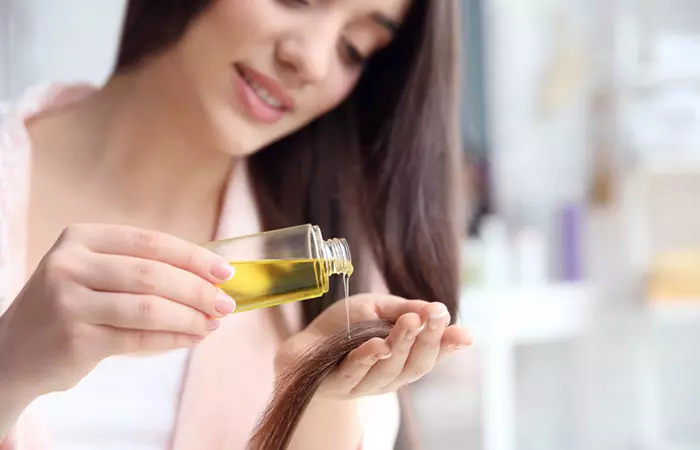
Tea tree oil also possesses antibacterial, antifungal, and anti-inflammatory properties, which help it boost scalp health by tackling issues like dandruff (15),(16). It is also an effective ingredient when it comes to keeping the scalp clean. When combined with castor oil, it helps thicken your hair by curbing hair fall and boosting hair regrowth.
You Will Need
- 4-5 drops tea tree oil
- 2 tablespoons castor oil
- 2 tablespoons coconut oil
Prep Time
2 minutes
Processing Time
45 minutes
Process
- Combine the coconut and castor oils in a bowl and heat the blend until it is slightly warm. Add the tea tree oil drops to the blend and mix gently.
- Apply the oil blend to your scalp and ensure that you have every spot covered. Work the oil down to the tips of your hair.
- Massage your scalp for about 10-15 minutes. Concentrate on the problem areas where you have been experiencing a lot of hair loss.
- Leave the oil in for an additional 30 minutes or use it as an overnight treatment.
- Wash the oil out with water and a mild sulfate-free shampoo and conditioner.
How Often?
3 times a week.
6. Castor Oil And Hibiscus Petals
Hibiscus
helps boost the efficiency of castor oil by soothing your scalp and helping you keep your hair healthy (17). It prevents hair breakage and splitting and is an excellent hair conditioner.
You Will Need
- 1 tablespoon castor oil
- 1 tablespoon coconut oil
- 1 tablespoon almond oil
- 2 vitamin E oil capsules
- 10-15 hibiscus petals
Prep Time
Overnight
Processing Time
1 hour
Process
- Combine all the oils in a bowl to get an oil blend. Empty the 2 capsules of vitamin oil in this blend and mix well.
- Crush the hibiscus petals and add it to the oil blend. Let it sit overnight.
- In the morning, start applying the oil blend onto your scalp and ensure that you have every spot covered. Work the oil down to the tips of your hair.
- Massage your scalp for about 10-15 minutes. Concentrate on the problem areas where you have been experiencing a lot of hair loss.
- Leave the oil on for an additional 45 minutes.
- Wash the oil out with water and a mild sulfate-free shampoo and conditioner.
How Often?
3 times a week.
Note: Before using castor oil for baldness treatment, it’s important to follow safety precautions to avoid any adverse reactions. Here are a few things to consider:
- Always perform a patch test a small part of your body before applying the oil to your entire scalp. This helps prevent the risk of allergic reactions.
- If you notice redness, itching, or irritation, discontinue use with immediate effect.
- Pregnant and nursing women should consult their healthcare provider before using castor oil in any form.
- Use castor oil in moderation, as overuse can lead to scalp buildup.
- Keep the oil away from your eyes, as it may irritate them.
- If you have sensitive skin or scalp, be cautious and apply less frequently.
Infographic: Castor Oil: A Treatment For Baldness
Hair loss is serious and distressing for many people, but there are natural ways that can help with it. Castor oil is one of them. It is known to cure multiple problems such as acne, weakening nails, and hair loss. It is a brilliant self-care ingredient that can be used as a natural remedy. And so, we bring to you 3 natural remedies from castor oil to treat baldness and improve hair thickness.
Some thing wrong with infographic shortcode. please verify shortcode syntax
Castor oil is a rich source of vitamin E and essential fatty acids. It is a popular herbal remedy to ensure holistic health, and is also known to treat several issues, including hair care troubles. A thorough scalp massage using castor oil helps prevent hair loss and boosts hair regrowth. Therefore, many use castor oil to treat baldness. It helps get rid of hair thinning, splitting, and breakage. Regular application of the oil can boost blood circulation and nourish hair follicles. You may follow the methods and recipes mentioned above to use castor oil for baldness. Though it is considered non-toxic, castor oil may cause allergic reactions in some people. Therefore, do a patch test before you apply it to the scalp.
Frequently Asked Questions
Which oil is best for baldness?
A blend of essential oils (like rosemary and sage oils, paired with carrier oils (like coconut or jojoba oil), stimulates growth in hair effectively. Use these oils consistently at least once a week by massaging them into your scalp.
Can castor oil be applied directly to the scalp?
Yes, castor oil is a carrier oil that can be applied directly to the scalp.
How much time will castor oil take to regrow hair?
The hair growth phase indicates that it takes about 3-6 months for new hair growth. If you use castor oil consistently once or twice every week, you will see hair growth in 3-4 months.
Can I sleep with castor oil on my hair?
Yes, you can sleep with castor oil on your hair. Just wrap your hair in saran wrap or use a shower cap to prevent the oil from staining your pillow.
Can I leave castor oil on overnight?
Yes, castor oil can be left on the hair for an hour or overnight.
Illustration: Does Castor Oil Help Treat Baldness?
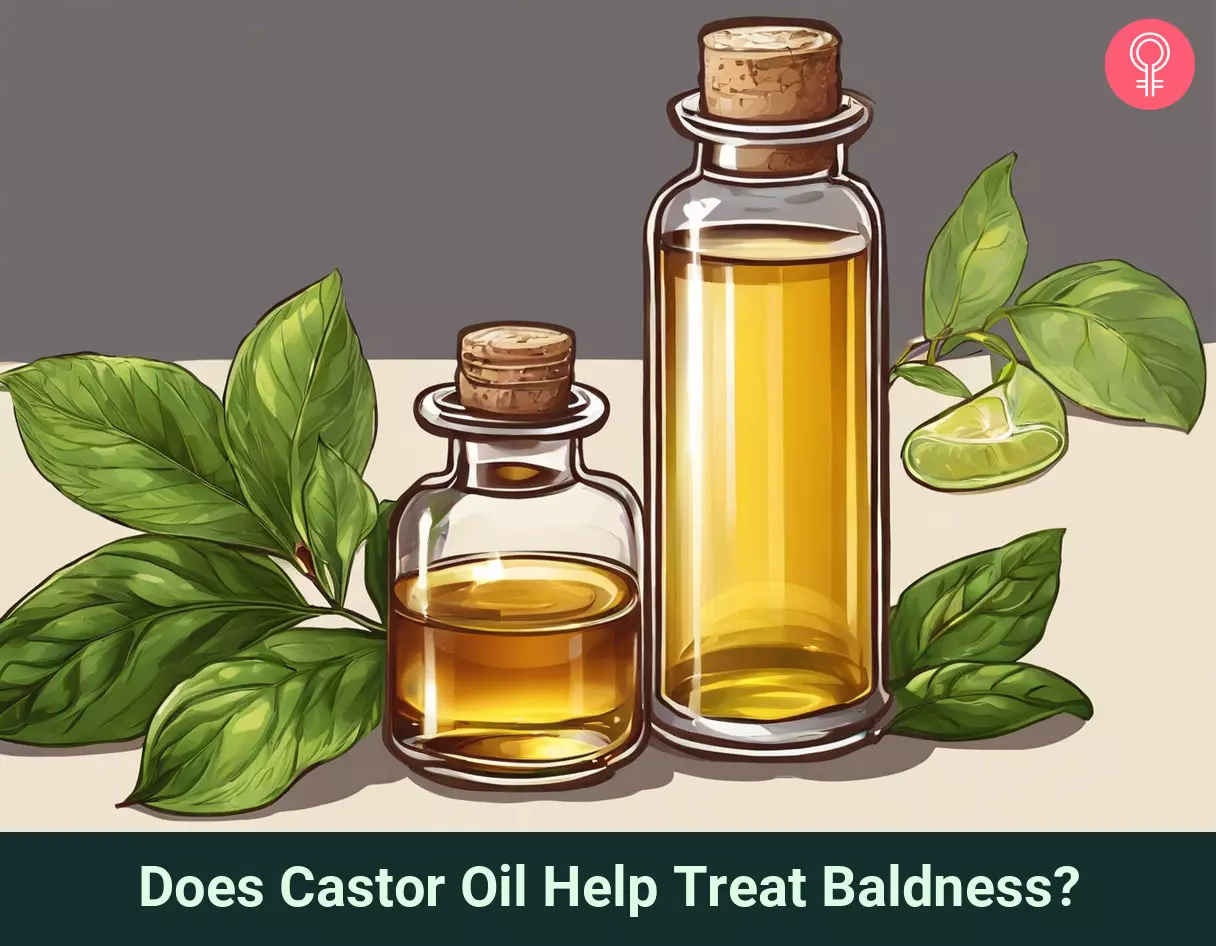
Image: Stable Diffusion/StyleCraze Design Team
Discover the top 7 benefits of castor oil for hair growth! Watch the video below to learn how this natural oil can help you achieve thicker, longer, and healthier hair.
Personal Experience: Source
StyleCraze's articles are interwoven with authentic personal narratives that provide depth and resonance to our content. Below are the sources of the personal accounts referenced in this article.
i. Can 30 days of castor oil cure 13 years of alopecia? Does it have to be Jamaican to work?https://www.youtube.com/watch?v=dk4pqCLTPew
References
Articles on StyleCraze are backed by verified information from peer-reviewed and academic research papers, reputed organizations, research institutions, and medical associations to ensure accuracy and relevance. Read our editorial policy to learn more.
- Sibbald. C. “Alopecia Areata: An Updated Review for 2025” Journal of Cutaneous Medicine and Surgery (3): 241–259.
https://www.ncbi.nlm.nih.gov/pmc/articles/PMC10291119/#:~:text=Alopecia%20areata%20is%20an%20immune2%25%20of%20the%20global%20population.&text=It%20can%20affect%20all%20ages(1.92%25%2C%201.47%25). - Harris. J “Vitiligo and alopecia areata: apples and oranges?” Wiley Online Library (2013).
https://onlinelibrary.wiley.com/doi/pdf/10.1111/exd.12264 - Rivitti. E. “Alopecia areata: a revision and update.” Scielo 80(1):57-68.
https://www.scielo.br/j/abd/a/vXCLdmVdz8ct6qzkmjBCSyd/?format=pdf&lang=en - Pratt C.H et al. “Alopecia areata.” Nature Reviews Disease Primers 3: 17011.
https://www.ncbi.nlm.nih.gov/pmc/articles/PMC5573125/ - Trost. B et al. “The diagnosis and treatment of iron deficiency and its potential relationship to hair loss.” Journal of the American Academy of Dermatology 54(5):824-44.
https://pubmed.ncbi.nlm.nih.gov/16635664/ - Salfeld K. and Bruske K. “[Zinc and its status in some dermatologic diseases–a statistical assessment]” US National Library of Medicine 1:125-31.
https://pubmed.ncbi.nlm.nih.gov/3442079/ - Momoh Abdul O. M. K. Oladunmoye and T. T. Adebolu. “Evaluation of the antimicrobial and phytochemical properties of oil from castor seeds (Ricinus communis Linn).” (2012).
https://www.researchgate.net/publication/291994317_Evaluation_of_the_antimicrobial_and_phytochemical_properties_of_oil_from_castor_seeds_Ricinus_communis_linn - Vieira C et al. “Effect of ricinoleic acid in acute and subchronic experimental models of inflammation.” Mediators of inflammation vol. 95 (2000): 223-8.
https://pubmed.ncbi.nlm.nih.gov/11200362/ - Zaid Abdel Naser et al. “Ethnopharmacological survey of home remedies used for treatment of hair and scalp and their methods of preparation in the West Bank-Palestine.” BMC complementary and alternative medicine vol. 171 355.
https://www.ncbi.nlm.nih.gov/pmc/articles/PMC5499037/ - Patel Vinay R et al. “Castor Oil: Properties Uses and Optimization of Processing Parameters in Commercial Production.” Lipid insights vol. 9 1-12.
https://www.ncbi.nlm.nih.gov/pmc/articles/PMC5015816/ - Fong Pedro et al. “In silico prediction of prostaglandin D2 synthase inhibitors from herbal constituents for the treatment of hair loss.” Journal of ethnopharmacology vol. 175 (2015): 470-80.
https://pubmed.ncbi.nlm.nih.gov/26456343/ - Rele Aarti S and R B Mohile. “Effect of mineral oil sunflower oil and coconut oil on prevention of hair damage.” Journal of cosmetic science vol. 542 (2003): 175-92.
https://pubmed.ncbi.nlm.nih.gov/12715094/ - Pullar Juliet M et al. “The Roles of Vitamin C in Skin Health.” Nutrients vol. 98 866.
https://www.ncbi.nlm.nih.gov/pmc/articles/PMC5579659/ - Panahi Yunes et al. “Rosemary oil vs minoxidil 2% for the treatment of androgenetic alopecia: a randomized comparative trial.” Skinmed vol. 131 (2015): 15-21.
https://pubmed.ncbi.nlm.nih.gov/25842469/ - Carson C F et al. “Melaleuca alternifolia (Tea Tree) oil: a review of antimicrobial and other medicinal properties.” Clinical microbiology reviews vol. 191 (2006): 50-62.
https://www.ncbi.nlm.nih.gov/pmc/articles/PMC1360273/ - Satchell Andrew C et al. “Treatment of dandruff with 5% tea tree oil shampoo.” Journal of the American Academy of Dermatology vol. 476 (2002): 852-5.
https://pubmed.ncbi.nlm.nih.gov/12451368/ - Adhirajan N et al. “In vivo and in vitro evaluation of hair growth potential of Hibiscus rosa-sinensis Linn.” Journal of ethnopharmacology vol. 882-3 (2003): 235-9.
https://pubmed.ncbi.nlm.nih.gov/12963149/
Read full bio of Madison Dufour
Read full bio of Anjali Sayee
Read full bio of Ramona Sinha
Read full bio of Swathi E






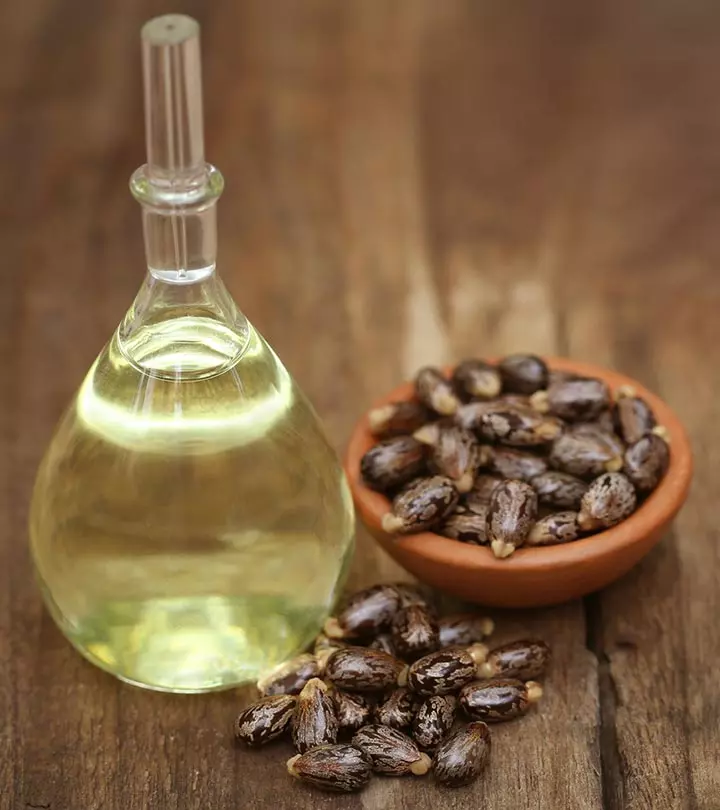
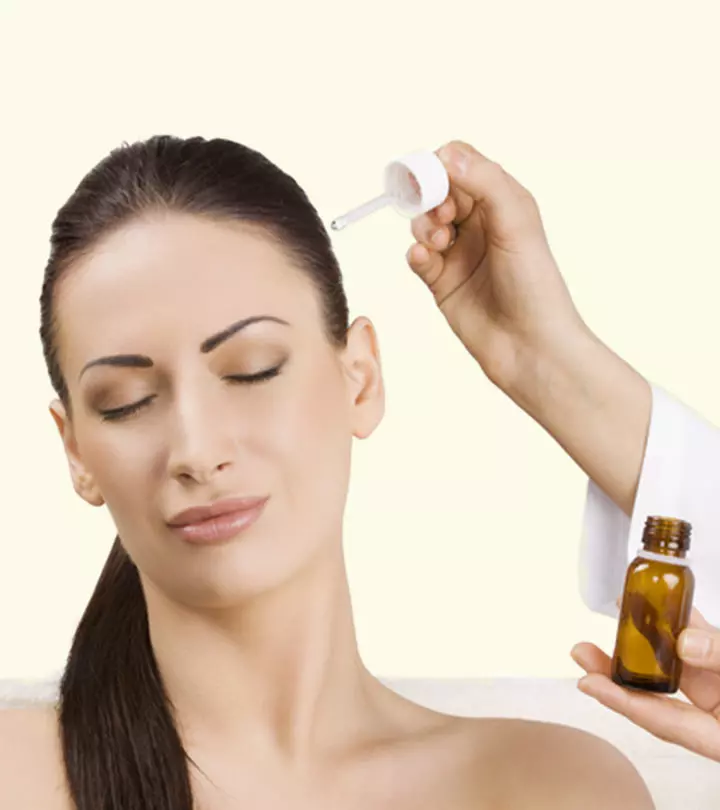
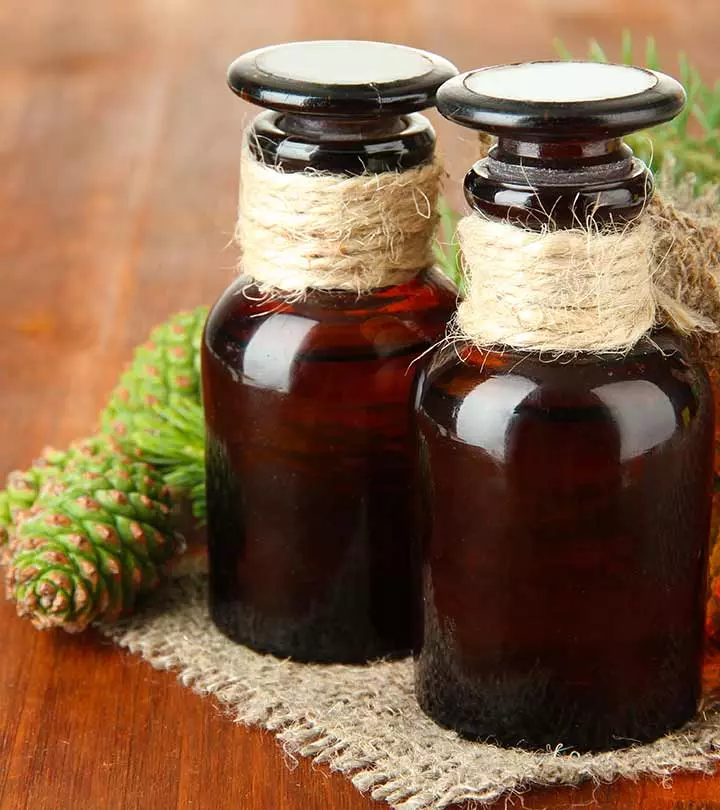
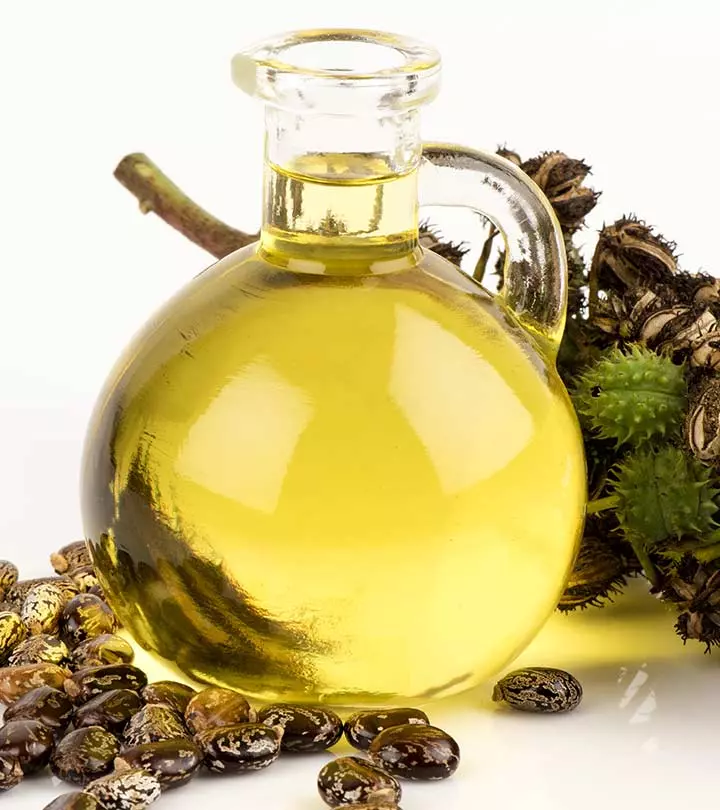
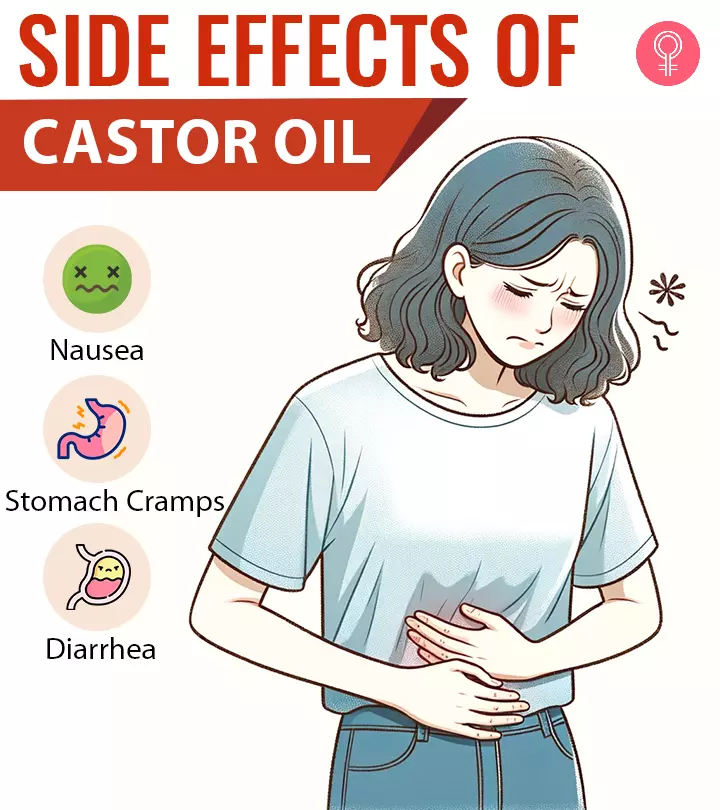


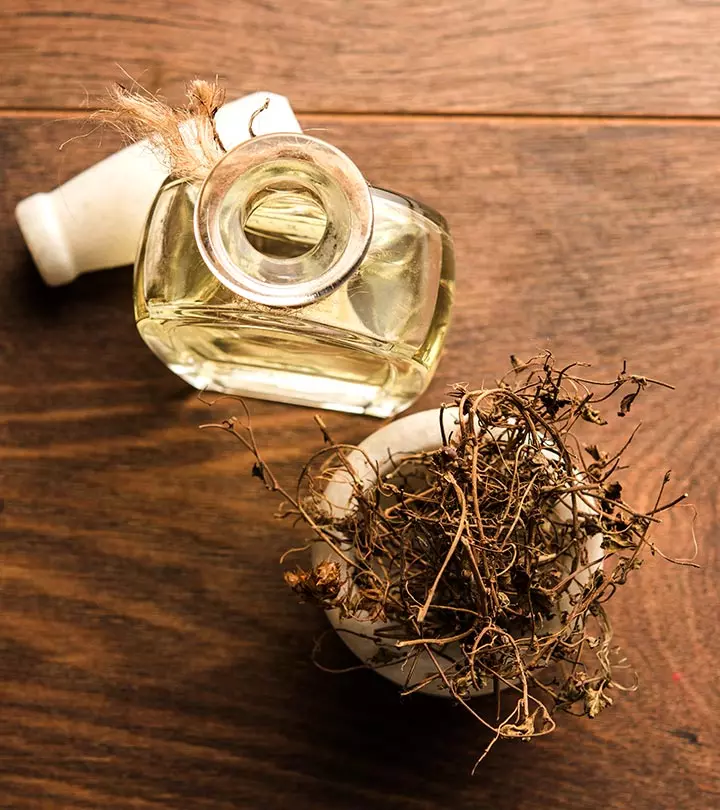
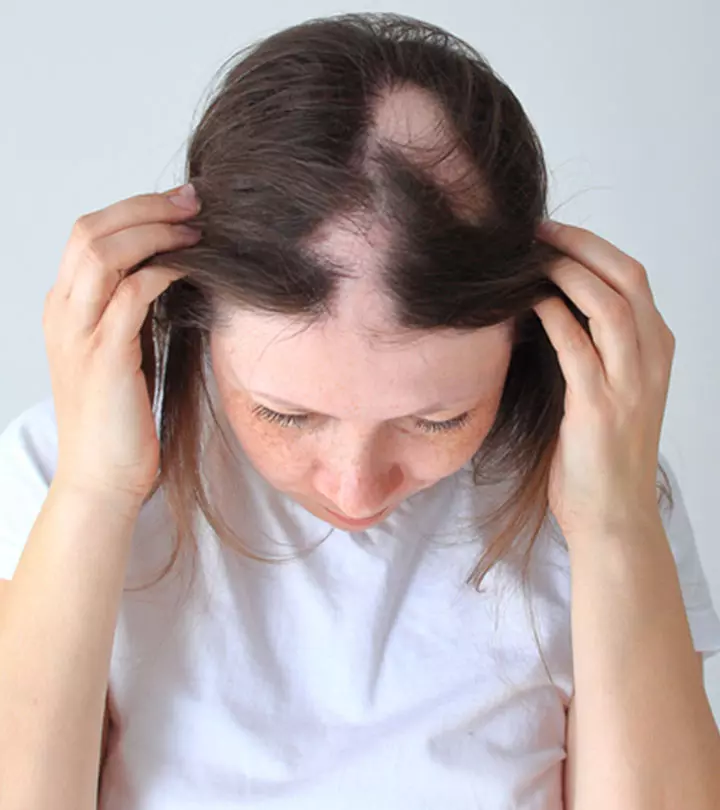
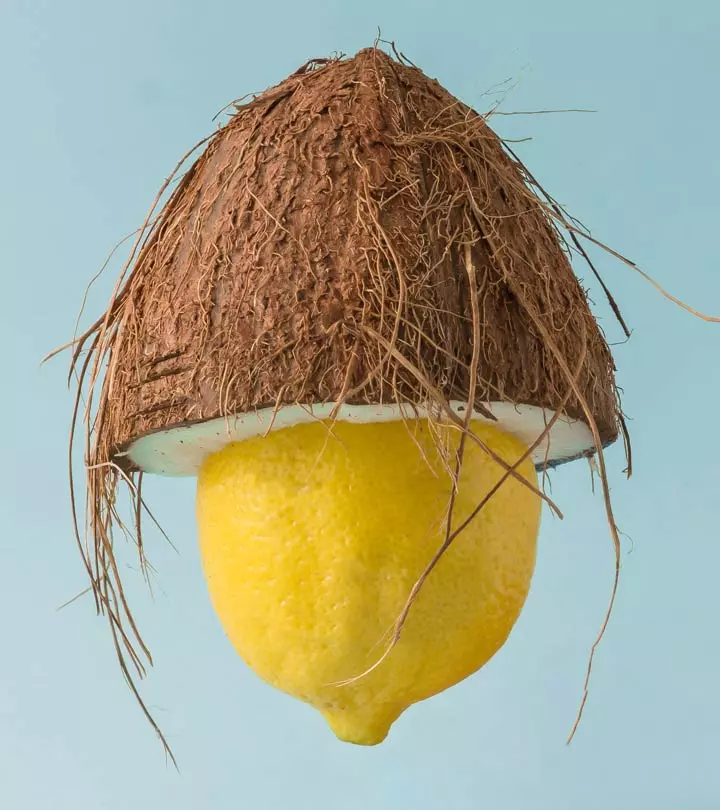
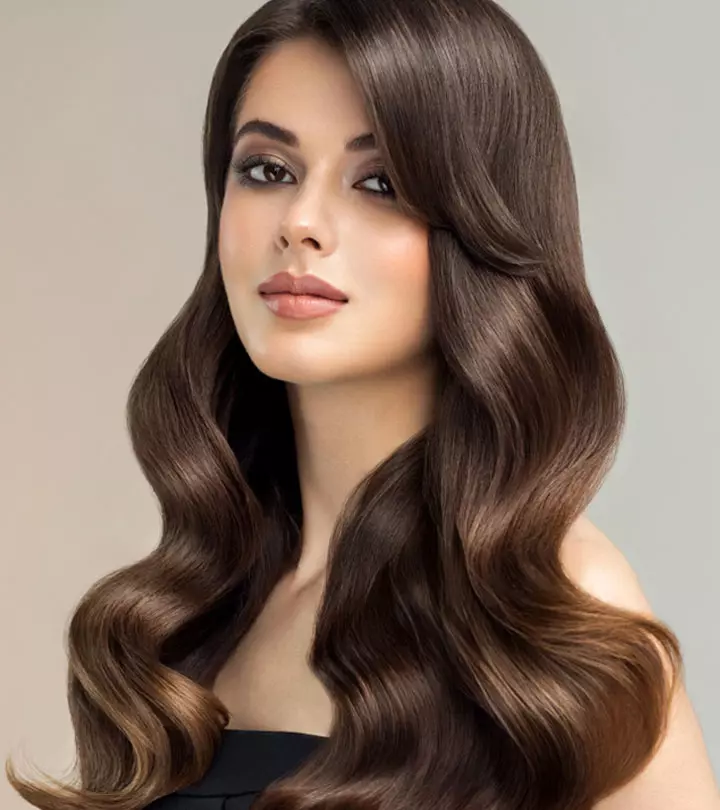
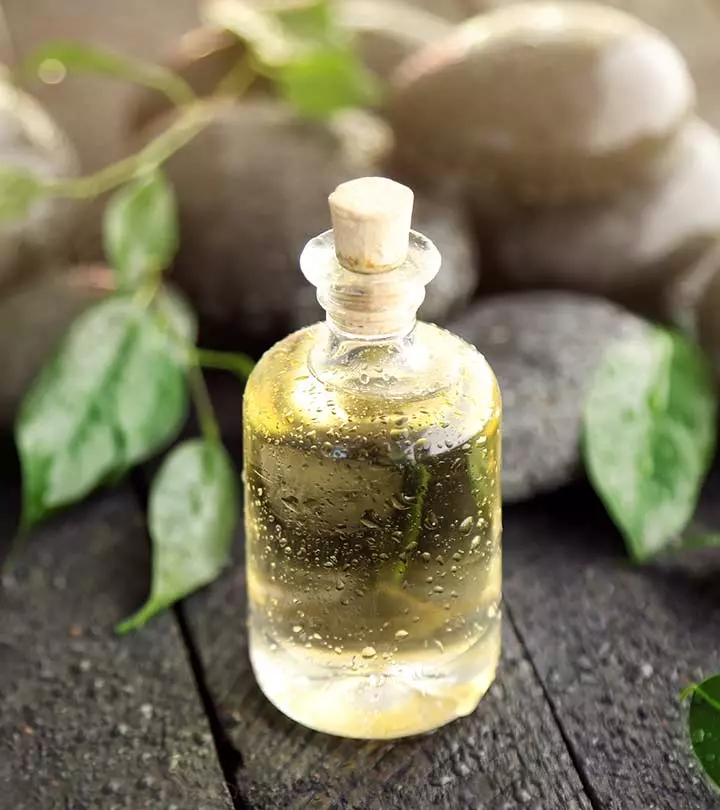
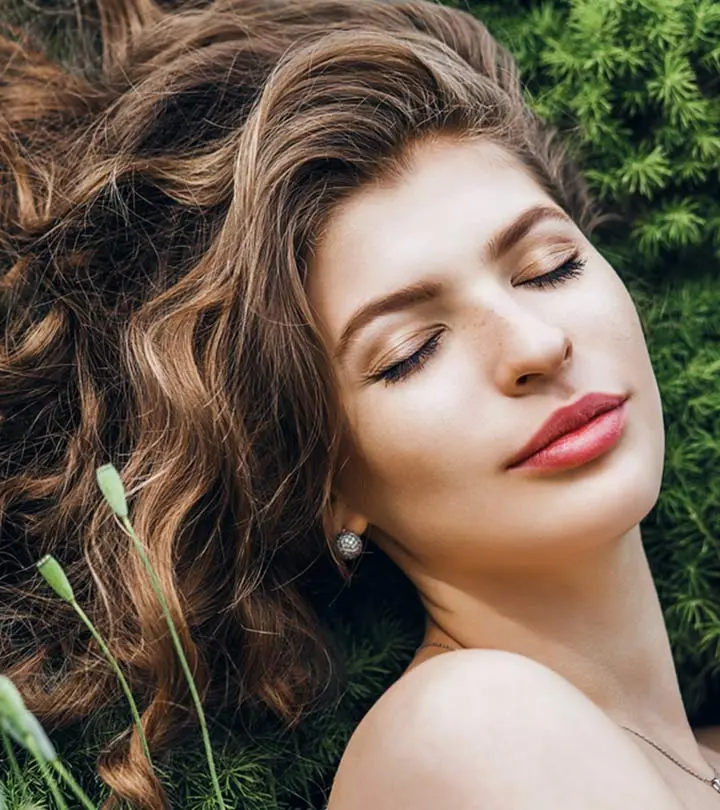
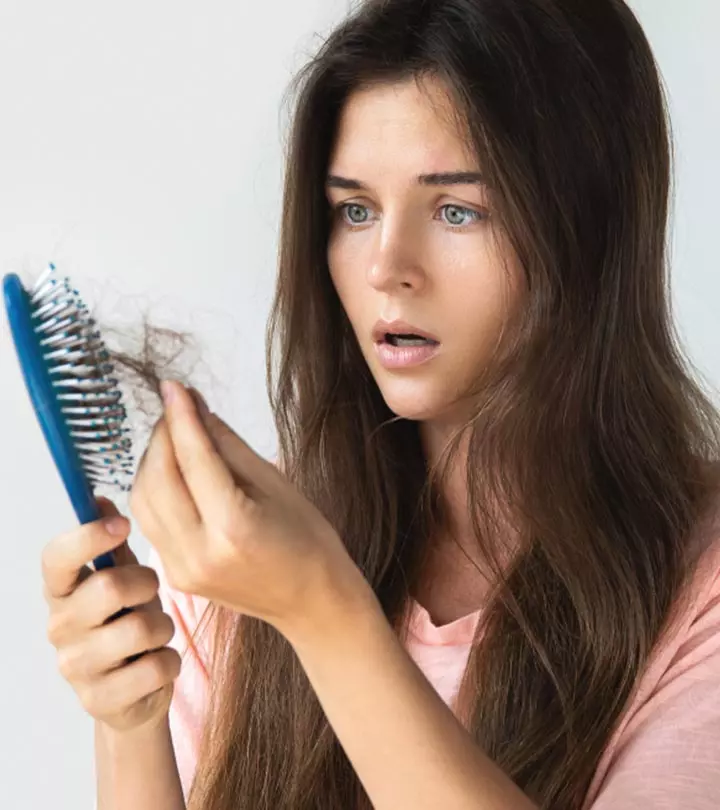



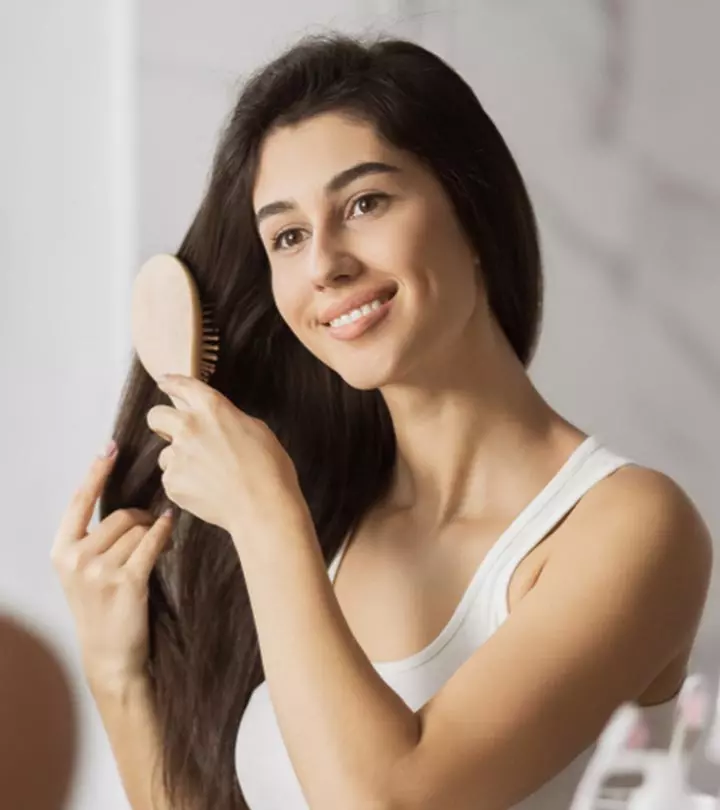
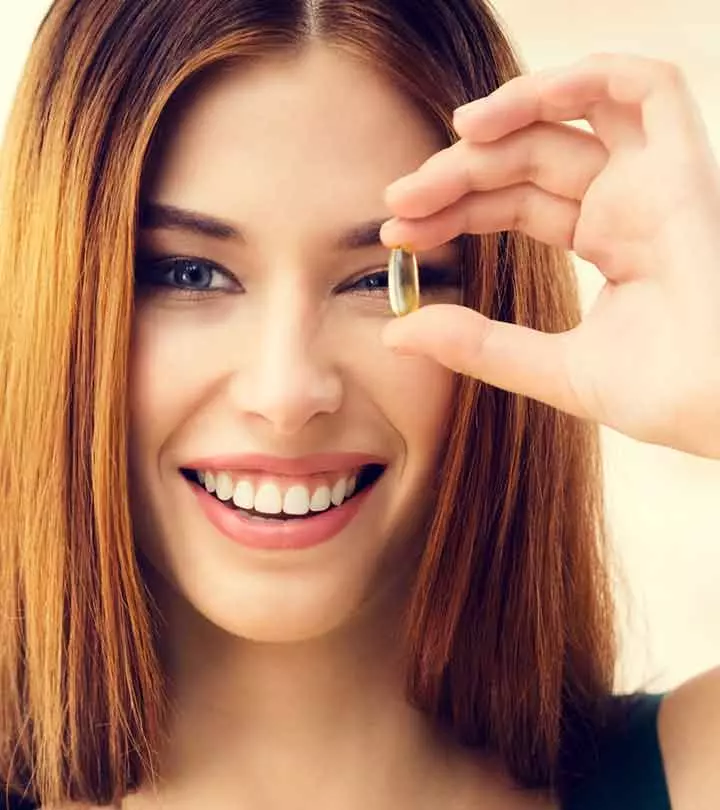

Community Experiences
Join the conversation and become a part of our empowering community! Share your stories, experiences, and insights to connect with other beauty, lifestyle, and health enthusiasts.